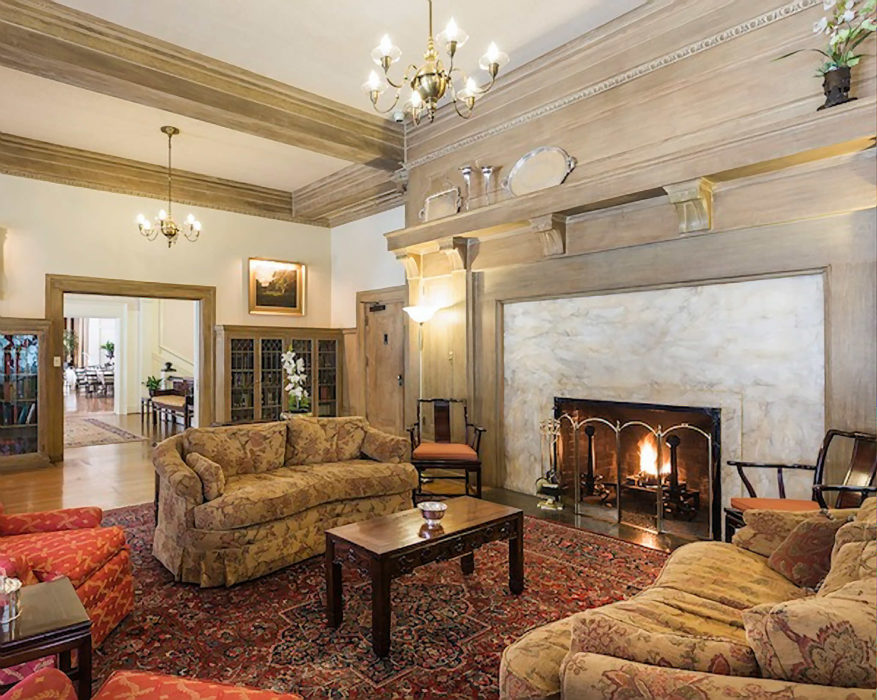“I AM DELIGHTED TO speak before this gathering of revered ladies,” ‘Abdu’l-Bahá began, “who have met for the purpose of investigating the realities of life.” On Tuesday, October 16, 1912, he addressed the Century Club of California, a private social club for women founded in 1888, which devoted its energies and financial resources to the advancement of women. Phoebe Hearst had been its first president. Julia Morgan, the architect of Ms. Hearst’s estate in Pleasanton, had also designed the club’s illustrious Edwardian mansion. Ella Cooper, who had traveled in Mrs. Hearst’s party to ‘Akká in 1898, in the first group of Americans to visit ‘Abdu’l-Bahá, sat in on the gathering, scribbling down ‘Abdu’l-Bahá’s words as they were translated.
‘Abdu’l-Bahá made his position on gender equality unequivocal. “Some believe that man is the greater and preferable member of the body politic,” he told the women, “that he is created with certain superior virtues, and that woman, however great may be her attainment, can never reach man’s level, because she is not endowed with equal faculties.” He refuted this position, noting instead that in the eyes of growing majority, and surely in the eyes of God, “perfect equality already exists.”
‘Abdu’l-Bahá turned to the role of mothers in the development of society. “The great educator of man is woman,” he argued, “for it is the mother who is the first teacher.” “In the world of humanity the most productive and useful member, after all, is woman,” he said to reinforce his point, “for it is woman who educates man, not the reverse. She rears the children; she cares for the home upon which the body politic is founded; she gives birth to mighty leaders.”
It is, therefore, men’s duty to be “grateful” to womankind, ‘Abdu’l-Bahá argued. It would be impossible for men to progress without women, he pointed out, yet “when woman demands her rights she is refused. . . .”

‘Abdu’l-Bahá proceeded to debunk several common arguments against women’s equality with men. One of the nineteenth century’s favorite pseudosciences, phrenology, held that because men had larger heads and brains than women, it followed that they were more intelligent than women. “This argument is not in accordance with facts,” ‘Abdu’l-Bahá noted, “since the history of brain efficiency shows that large brains and large heads are not necessarily indicative of intelligence. . . .” “If the weight of the brain and the size of the skull were indicative of brain efficiency,” he added, “then verily the donkey would be more brainy than man!”
After discrediting the arguments of phrenology, ‘Abdu’l-Bahá took aim at another commonly held myth: that women were not the equal of men because they did not engage in war and combat. “Capability in this direction is ferocity,” he said, “and a lack thereof is not a deficiency.” Nevertheless, he pointed out several historical accounts, such as the case of Zenobia, Queen of Palmyra, in which women had exceeded men on the battlefield.
Finally, ‘Abdu’l-Bahá redefined courage altogether. “It is not dependent upon an exhibition of ferocity, upon the shedding of blood,” he argued. “On the contrary, it is dependent upon perception, reason, knowledge, attainment, perfection.”






